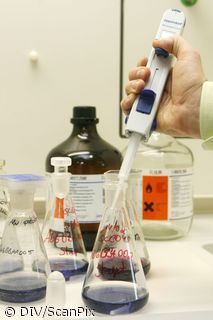Two more former secret police in the Baltic states have been found guilty of Stalinist-era crimes against humanity and sentenced to prison.
Published:
20 July 2000 y., Thursday
An 86-year-old former officer in Stalin's secret police, Yevgeny Savenko, was found guilty by a Latvian court on July 7 and sentenced to two years in prison for participating in the arrest and deportation of scores of Latvians after the country was occupied by Soviet forces in 1940.
Prosecutors say Savenko signed orders for the arrest of some 50 people, including policemen, Latvian officers and even several high-school students. Many were eventually executed or died in prison.
In Estonia, Karl-Leonhard Paulov, 76, was convicted on June 29 and given an eight year prison sentence for murdering three Estonians hiding in the forest from Soviet authorities in the 1940s. Last year, he was convicted on similar charges. But a court later ordered that his case be heard again.
Tens of thousands of people took refuge in Baltic forests in the years after the Soviet takeover in 1940. Many sought to avoid deportation to Siberia, while others took up arms to actively resist the Soviet occupation.
As a young agent, Paulov was ordered into the forest to gain the confidence of forest refugees, then to capture or kill them. Prosecutors said he ended up shooting two of the men mentioned in the indictment in the back. Paulov told the court he'd acted in self-defense.
After they regained independence, all three Baltic states pledged to indict and convict those responsible for Stalinist-era atrocities. Half a dozen men have been convicted in the Baltic states for Stalinist-era crimes, and half a dozen other cases are expected to go to court in the coming weeks and months.
Šaltinis:
Copying, publishing, announcing any information from the News.lt portal without written permission of News.lt editorial office is prohibited.
The most popular articles

The European Commission announced today the award of three of the six contracts for the procurement of Galileo’s initial operational capability.
more »
 As part of the 2009 European Year of Creativity and Innovation, a diverse group of prominent scientists, artists, scholars and business executives - European ambassadors of the year – has come up with an ambitious manifesto.
more »
As part of the 2009 European Year of Creativity and Innovation, a diverse group of prominent scientists, artists, scholars and business executives - European ambassadors of the year – has come up with an ambitious manifesto.
more »
 A hundred teams have arrived to Washington, DC from all corners of the globe, each with an idea to help save the planet.
more »
A hundred teams have arrived to Washington, DC from all corners of the globe, each with an idea to help save the planet.
more »
 NASA is calling its new rocket Ares 1-X the next chapter in space exploration.
more »
NASA is calling its new rocket Ares 1-X the next chapter in space exploration.
more »
 Common rules proposed for cross-border inheritances.
more »
Common rules proposed for cross-border inheritances.
more »
 Solar energy and carbon capture and storage earmarked for lion's share of extra technology funding.
more »
Solar energy and carbon capture and storage earmarked for lion's share of extra technology funding.
more »
 George Smith and his colleague Willard Boyle revolutionized digital imaging technology, and on Tuesday the two men each got an early morning call from Sweden advising they'd been awarded one half of the 2009 Nobel Prize for Physics.
more »
George Smith and his colleague Willard Boyle revolutionized digital imaging technology, and on Tuesday the two men each got an early morning call from Sweden advising they'd been awarded one half of the 2009 Nobel Prize for Physics.
more »
 European Commission called public authorities, business, and researchers to join efforts in order to develop by 2020 the necessary technologies to address climate change, secure EU energy supply and ensure the competitiveness of our economies.
more »
European Commission called public authorities, business, and researchers to join efforts in order to develop by 2020 the necessary technologies to address climate change, secure EU energy supply and ensure the competitiveness of our economies.
more »
 This year's announcement from Stockholm, Sweden -- awarded the Nobel prize for medicine to a trio of Americans for discovering telomerase -- an enzyme which helps prevent the fraying of chromosomes that underlies aging and cancer.
more »
This year's announcement from Stockholm, Sweden -- awarded the Nobel prize for medicine to a trio of Americans for discovering telomerase -- an enzyme which helps prevent the fraying of chromosomes that underlies aging and cancer.
more »
 Since its launch in 1987, the Erasmus programme has helped 2 million students carry out a part of their studies or a work placement in another European country.
more »
Since its launch in 1987, the Erasmus programme has helped 2 million students carry out a part of their studies or a work placement in another European country.
more »
 Three separate missions examining the moon have found clear evidence of water there, apparently concentrated at the poles and possibly formed by the solar wind.
more »
Three separate missions examining the moon have found clear evidence of water there, apparently concentrated at the poles and possibly formed by the solar wind.
more »